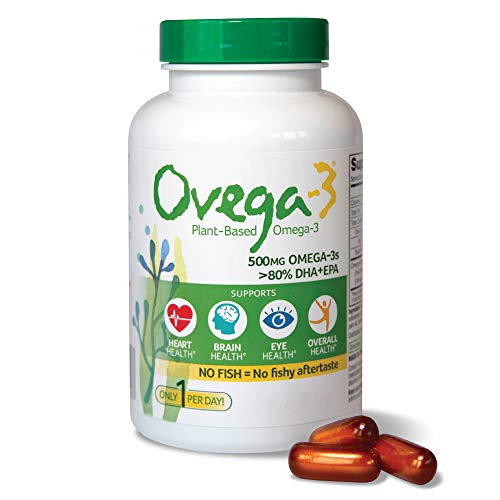
You’ve likely heard about the health benefits of Omega 3s, but did you know they’re also a powerhouse for gut health? Omega-3 supplements are crucial for brain and heart health, but recent evidence suggests they play a vital role in maintaining a healthy gut microbiome.
Omega-3s appear in several forms: EPA, DHA, and ALA. While EPA and DHA are typically extracted from fish and krill oil, ALA is commonly found in plant oils like flaxseed. Knowing which form you’re consuming can directly impact the supplement’s absorption and efficacy.
Considering the countless Omega-3 supplements on the market, choosing the perfect one for your gut health can seem like finding a needle in a haystack. This isn’t just about popping a pill; it’s about making an educated decision considering multiple facets, such as ingredient quality, optimal dosages, and environmental impact.
My goal is to guide you through the maze of Omega-3 supplements, ensuring your choice is informed and tailored to your health needs. As we transition into the next section, we’ll dive deeper into the vital considerations, including ingredients, dosage, and the additional factors that set the highest standard for Omega-3 supplements.
Understanding the Essentials of Omega-3 Supplements
When you’re hunting for the best Omega-3 supplement, it’s not just about picking a bottle off the shelf. You need to be savvy about ingredients, dosage, and much more. Let’s unravel these core factors to help you make a spot-on choice for your health.
Comprehensive Reviews of Top Omega-3 Supplements
Nordic Naturals Ultimate
- Ingredients and Formulation: High levels of EPA (650 mg) and DHA (450 mg) per serving from wild-caught fish.
- Purity and Quality: Third-party tested for purity and freshness; Non-GMO.
- Sustainability: MSC certified.
- Form and Flavor: Soft gels with a lemon flavor.
- Price and Value: Moderate price, high concentration of Omega-3s.
- Customer Reviews: Praised for effectiveness and minimal fishy aftertaste.
Pros:
- High potency and concentration of EPA and DHA.
- Lemon flavor reduces the fishy aftertaste.
- Non-GMO and third-party tested for purity.
Cons:
- Some users report large pill sizes as challenging to swallow.
- Higher price point compared to other brands.
If you’re looking for a high-quality, sustainable option, Nordic Naturals Ultimate Omega is a top choice despite the higher price.
Viva Naturals Omega-3 Fish Oil
- Ingredients and Formulation: 1,400 mg of Omega-3s per serving (800 mg EPA, 600 mg DHA); sourced from small, wild-caught fish.
- Purity and Quality: IFOS 5-star certified; free from heavy metals and toxins.
- Sustainability: Sustainable sourcing practices.
- Form and Flavor: Soft gels with a light citrus flavor.
- Price and Value: Excellent value for the concentration of Omega-3s.
- Customer Reviews: High potency and absence of fishy burps.
Pros:
- High dosage of EPA and DHA per serving.
- Light citrus flavor helps prevent fishy burps.
- IFOS is 5-star certified for quality and purity.
Cons:
- Soft gels may stick together in the bottle.
- Some users experienced gastrointestinal discomfort.
For a high-quality Omega-3 supplement with excellent value, Viva Naturals Omega-3 Fish Oil is a standout choice.
Garden of Life Dr. Formulated Alaskan Cod Liver Oil
- Ingredients and Formulation: 1,000 mg of Omega-3s per serving from wild-caught Alaskan cod.
- Purity and Quality: Non-GMO, certified sustainable, third-party tested.
- Sustainability: MSC certified.
- Form and Flavor: Soft gels and liquid with a natural lemon mint flavor.
- Price and Value: Higher price but justified by quality.
- Customer Reviews: Praised for purity and pleasant taste.
Pros:
- High-quality ingredients with certified sustainability.
- Pleasant lemon mint flavor.
- Non-GMO and third-party tested.
Cons:
- Higher price point.
- Some users reported a strong aftertaste despite the flavoring.
If sustainability and high purity are your top priorities, Garden of Life Dr. Formulated Alaskan Cod Liver Oil is worth the investment.
Sports Research Omega-3 Wild Alaskan Fish Oil
- Ingredients and Formulation: 1250 mg per serving with a good ratio of EPA to DHA from wild Alaskan pollock.
- Purity and Quality: MSC certified and backed by third-party testing.
- Sustainability: Sustainable sourcing practices.
- Form and Flavor: Natural lemon flavor.
- Price and Value: Reasonably priced.
- Customer Reviews: High quality at an affordable price.
Pros:
- Balanced Omega-3 content.
- Lemon flavor prevents a fishy aftertaste.
- MSC certified for sustainability.
Cons:
- Some users find the soft gels large.
- Occasional reports of mild aftertaste.
Sports Research Omega-3 Wild Alaskan Fish Oil is an excellent choice for those seeking a budget-friendly, high-quality option for sports Research Omega-3 Wild Alaskan Fish Oil.
Ovega-3 Plant-Based Omega-3 Supplement
- Ingredients and Formulation: 500 mg of Omega-3s from algae oil, making it entirely vegan-friendly.
- Purity and Quality: Non-GMO and free from ocean-borne contaminants.
- Sustainability: Eco-friendly sourcing.
- Form and Flavor: Soft gels with no fishy taste.
- Price and Value: A higher price means a lower concentration than fish-based options.
- Customer Reviews: Great for vegetarians and vegans; some find the dosage lower than desired.
Pros:
- Vegan-friendly and allergen-free.
- Non-GMO with eco-friendly sourcing.
- No fishy aftertaste.
Cons:
- Higher price for lower Omega-3 concentration.
- Some users prefer higher dosages.
Conclusion: For a vegan and eco-friendly Omega-3 supplement, Ovega-3 Plant-Based Omega-3 Supplement is a solid choice despite the higher cost.






Thank you for the insightful post, I actually didn’t know of the different sources of omega-3 supplements: fish oil, krill oil, and plant oil. Understanding the bioavailability and potential benefits of each type can really help us make informed decisions when choosing a supplement, and you make it crystal clear. I’m just curious about the recommended dosage and frequency of omega-3 intake for optimal health benefits, can you please shed some light on that.
Thank you for your thoughtful comment! I’m glad you found the post helpful. For optimal health benefits, the recommended dosage of omega-3 varies based on individual health goals and conditions. I have an article that goes into depth about this here
Hi thanks for the informative article. Do you know what the different types of Omega 3 do for the body? And what are the daily recommended doses? Can you take too much Omega 3? Sorry about the plethora of questions but I’m really interested in gut health as I think it has a huge impact on our overall health.
Thank you for your comment and interest in gut health! I’m glad you found the article informative. In another article, I’ve covered the different types of Omega-3 fatty acids, their benefits, recommended daily doses, and potential risks in detail. You can check it out here: The Importance of Omega-3 Fatty Acids for Gut Health